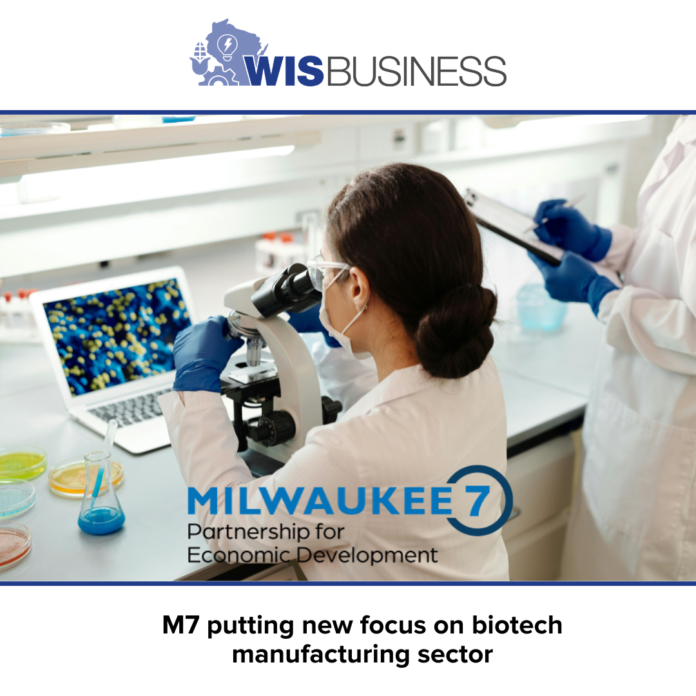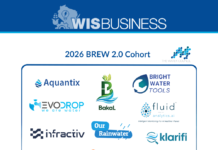The Milwaukee 7 Regional Partnership wants to put a greater emphasis on biotech companies and other manufacturers as it develops its next five-year plan.
Rebecca Gries, executive director for M7, shared an update on the group’s efforts during this week’s meeting of the Milwaukee Rotary Club. The organization was founded in 2005 and has spent the last two decades working to attract more business investment in the seven-county region, along with other economic development priorities.
These efforts have been guided by a Deloitte study from 2008 examining southeastern Wisconsin’s key industries, Gries said. To reflect the changes that have happened in the region since then, the group is now using an updated framework, she explained.
Replacing an earlier cluster described as medical technology manufacturing, the group is putting a new focus on biotech and manufacturing to capitalize on the region’s momentum, according to Gries. The region has seen a 37% increase in jobs in this sector over the last 10 years, well above the U.S. average of 17% over that period.
Looking ahead, southeastern Wisconsin’s biotech employment is expected to grow by 21% over the coming years based on U.S. Bureau of Labor Statistics data. At the national level, that’s projected to be 12%.
Gries also referenced the federal Biohealth Tech Hub designation for Wisconsin, noting it’s “shining a new light on our region” as funded projects continue.
Along with the biotech sector, M7 is targeting growth in technology and electronics manufacturing as well as energy and component manufacturing. Gries pointed to the rise of data centers as well as “high-energy” industrial production as factors driving this focus.
“We are feeling very bullish about getting more of these investments and becoming a hub for this type of industry in Milwaukee,” she said, adding the region is “becoming known as the home of intelligent manufacturing, where our legacy in hardware craftsmanship and cutting-edge software innovation is really coming together.”
Still, she said uncertainty around tariffs is causing many companies in the area to pause some decisions, noting some projects getting “close to the finish line” have now been put on hold.
Gries also touted the impact of the last five-year plan, noting the region exceeded the goals it set on jobs, capital investments and wage growth. While the 2020-2024 plan targeted 8,800 new jobs, $1 billion in capital investment and a regional average wage around $64,000, it resulted in more than 11,000 new jobs, $5.49 billion capital investment and about $75,000 for the average wage.
“This is the most successful five-year campaign that we’ve had in the Milwaukee 7’s history, and we’re thrilled,” she said.
Watch the video.







